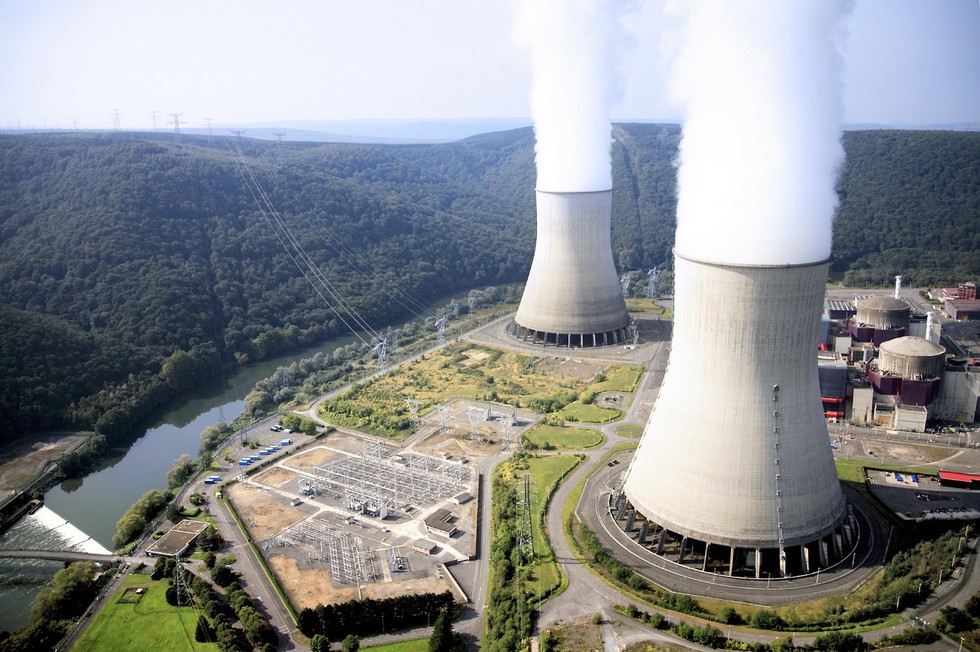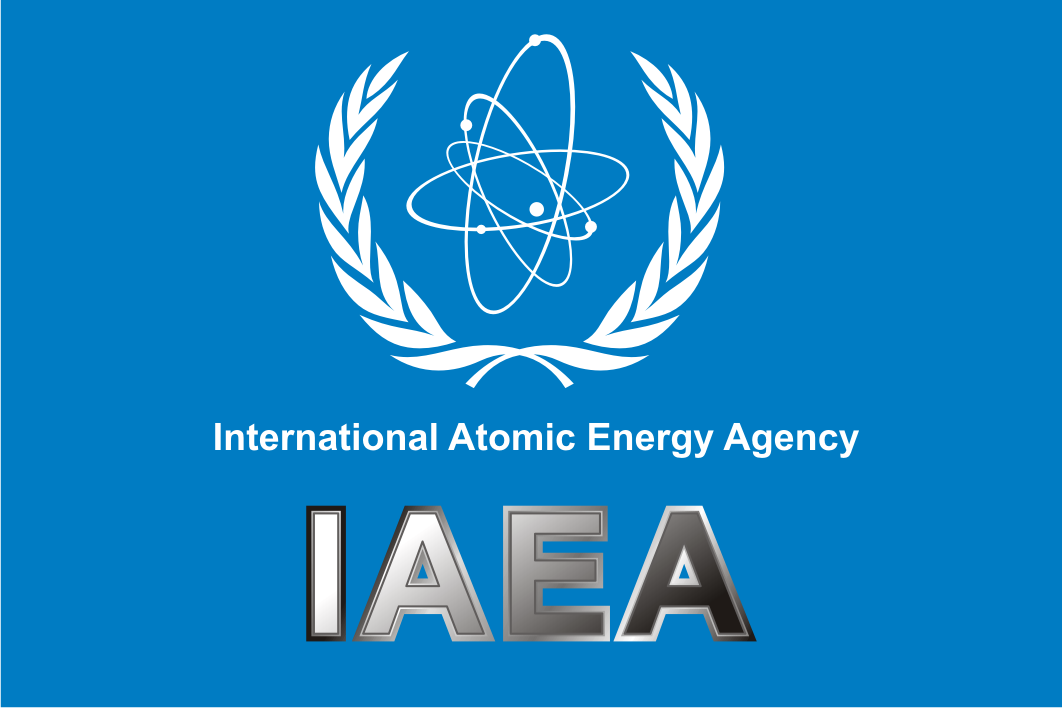General
IAEA Team Lauds Nigeria’s Nuclear, Radiation Safety Framework
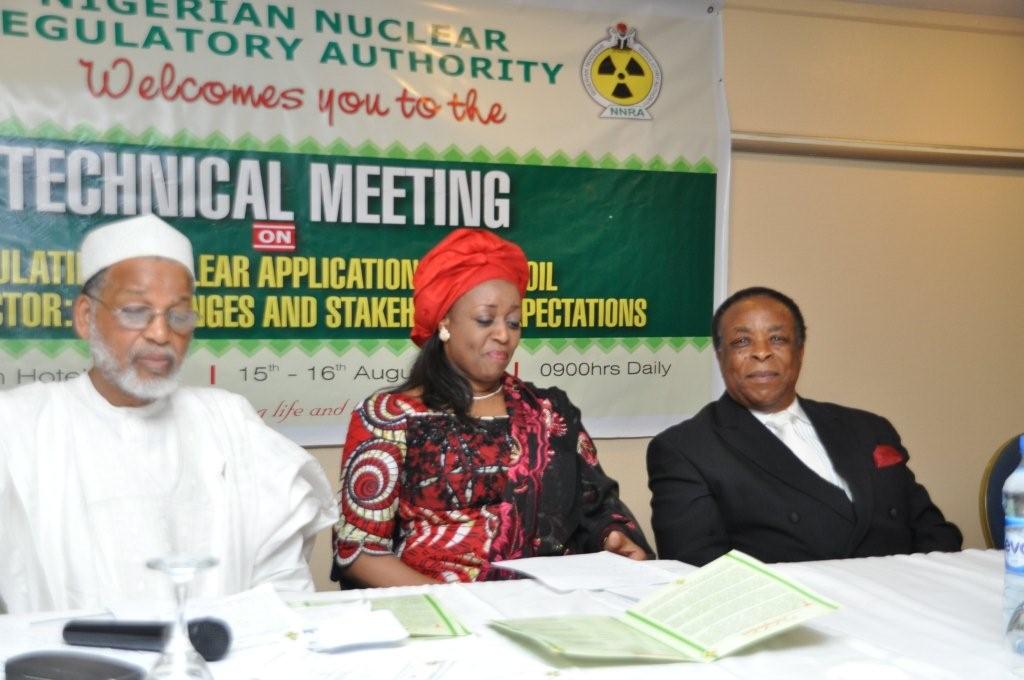
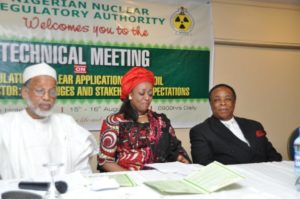
By Dipo Olowookere
The Nigerian Nuclear Regulatory Authority (NNRA), the body responsible for regulatory oversight in the country, has received a pat on the back for measures put in place to ensure nuclear and radiation safety.
This commendation came from an International Atomic Energy Agency (IAEA), which sent its Integrated Regulatory Review Service (IRRS) team to Nigeria on a 10-day mission to assess the regulatory framework for nuclear and radiation safety in the country.
The team said it was impressed that Nigeria has a committed regulatory body that works for the continuous improvement of nuclear and radiation safety, but noted challenges related to its independence in implementing regulatory decisions and activities.
“The IRRS team recognizes the strong commitment of Nigeria to improving nuclear and radiation safety.
“The team was extended full cooperation by all parties in this review,” said team leader Lamberto Matteocci, Technical Coordinator for Nuclear Safety and Radiation Protection at the Italian Institute for Environmental Protection and Research (ISPRA). “We believe the outcome of this mission will be of great help to the country in order to enhance its national regulatory framework.”
IRRS missions are designed to strengthen the effectiveness of the national regulatory infrastructure for nuclear and radiation safety, while recognizing the responsibility of each State to ensure safety.
Nigeria makes extensive use of radiation sources in medical and industrial applications as well as in science and research.
The country also has a research reactor used for the analysis of materials and training. Nigeria, Africa’s most populous country, has decided to include nuclear power in its energy mix to meet an increasing demand for electricity and support economic development. The country has been developing its nuclear power infrastructure for several years.
The team of experts made recommendations and suggestions to the Government and the NNRA to help them further enhance the country’s regulatory framework in line with IAEA safety standards.
The team recognized that the NNRA was committed to improving safety and to protecting people and the environment.
It noted that the regulatory body faces challenges in ensuring its full independence in decision-making and in developing its competence to effectively conduct regulatory activities, particularly in light of Nigeria’s planned nuclear power programme.
The 12-member IRRS team comprised senior experts from France, Germany, Greece, India, Italy, Latvia, Morocco, Pakistan, Slovenia, Turkey, and Zimbabwe, as well as three IAEA staff members.
“The Nigerian government will work with the IAEA to develop a work-plan for the implementation of the mission’s recommendations and suggestions,” said NNRA Director General Lawrence Dim. “Nigeria is always ready to cooperate with the Agency in the area of nuclear and radiation safety, as well as in other areas. We are committed to using the IAEA safety standards and international best practices to improve our policy, and legal, technical and regulatory infrastructure.”
During the mission, team members observed regulatory activities and held interviews and discussions with the government and NNRA management and staff.
They also visited the Abuja National Hospital, a gamma irradiation facility and the Centre for Energy Research and Training.
The team identified a good practice in the NNRA’s routine training for news media to inform them about its processes and decisions as well as the possible radiation risks associated with facilities and activities.
After the visit, the mission provided recommendations and suggestions for improvements, including establishment of a national policy on safety and ensure that the corresponding legal framework is in line with IAEA safety standards and making sure that the NNRA is effectively independent and is functionally separate from entities having responsibilities or interests that could influence its decision-making.
Other recommendations were that NNRA should carry out an analysis of all competencies needed to cover its responsibilities, and develop and implement a human resource and training plan; ensure that all facilities and activities have a valid authorization, and establish and implement an enforcement policy to respond to non-compliance; and that NNRA should consider formalizing cooperation with other authorities having responsibilities related to safety.
Meanwhile, the final mission report will be provided to Nigeria in about three months and the Nigerian authorities have assured IAEA to make the report public.
General
NIMASA Rallies Stakeholders’ to Develop National Action Plan

By Adedapo Adesanya
The Nigerian Maritime Administration and Safety Agency (NIMASA) has pledged its commitment to provide the regulatory leadership, technical coordination, and stakeholder engagement required to successfully develop and implement a robust National Action Plan on maritime decarbonization in Nigeria.
The Director General of the agency, Mr Dayo Mobereola, made this known during the National Stakeholders’ workshop on the development of a National Maritime Decarbonization Action Plan, further describing the workshop as a critical step in actualising the Federal Government’s blue economy and climate objectives.
Represented by the Executive Director, Operations, Mr Fatai Taiye Adeyemi, the NIMASA DG underscored the significance of the IMO GreenVoyage2050 Project, a technical cooperation initiative /designed to support developing countries in implementing the IMO GHG Strategy.
According to him, the National Action Plan being developed will reflect national realities, leverage existing capacities, address identified gaps, and align with broader economic and environmental priorities of the federal government.
Mr Mobereola stressed that “this transition is not merely about compliance with international obligations, it is about safeguarding our marine environment, protecting public health, strengthening the blue economy, and ensuring that our maritime industry remains competitive and future-ready”, the DG said.
Also speaking at the event was the Technical Manager of the IMO GreenVoyage2050 Project, Ms Astrid Dispert, who highlighted that the overarching objective of the initiative is to advance a coherent and globally aligned regulatory framework to accelerate maritime decarbonization.
She also emphasised that NIMASA plays a pivotal role in driving the project at the national level.
The IMO GreenVoyage2050 Project provides technical expertise and institutional support to assist countries in developing and implementing National Action Plans that promote sustainable shipping practices, encourage investment in clean technologies, and strengthen capacity for long-term emissions reduction.
Through this collaboration, the federal government is advancing deliberate steps towards maritime decarbonization, reinforcing its commitment to global climate goals and ensuring a cleaner, greener, and more sustainable future for the sector.
General
BPP Mandates Digital Submission for MDAs From March 1

By Adedapo Adesanya
The Bureau of Public Procurement (BPP) has directed all Ministries, Departments and Agencies (MDAs) to comply with its digital submission process effective March 1.
The directive was contained in a circular signed by the Director-General of the Bureau, Mr Adebowale Adedokun, noting that the move was part of the bureau’s commitment to digital transformation and paperless governance.
It explained that the transition followed an earlier circular of Aug. 4, 2025, which introduced electronic submission procedures.
According to the bureau, it has successfully moved from physical filings to a dedicated e-mail service for document submissions and is now advancing to a more robust and integrated system.
The circular announced the inauguration of the BPP Digital Submission Portal, a web-based platform designed to enable MDAs submit procurement-related documents directly to the Bureau.
It stated that the automated platform would streamline the submission process, enhance transparency and ensure accelerated tracking of procurement-related documents and petitions.
“With effect from March 1, all MDAs will be required to use the portal to submit requests for ‘No Objection’ Certificates, approvals for ‘No Objection’ for special procurements, clarifications and status updates on submissions,” the bureau said.
It added that the portal would be hosted on the Bureau’s official website and would become fully operational from the effective date.
The bureau warned that physical submissions or manual hand-deliveries would no longer be prioritised and would eventually be rejected following the full transition to the digital platform.
It urged accounting officers to brief their procurement departments and ICT units on the development to ensure seamless processing of procurement activities from March 1.
It further advised MDAs to contact the Bureau via its official email for information on the onboarding process and integration into the portal.
The bureau emphasised that full compliance by all MDAs was required to ensure a smooth transition and avoid delays in the implementation of the 2026 fiscal year procurement processes.
General
Senate Seeks Removal of CAC Boss Hussaini Magaji
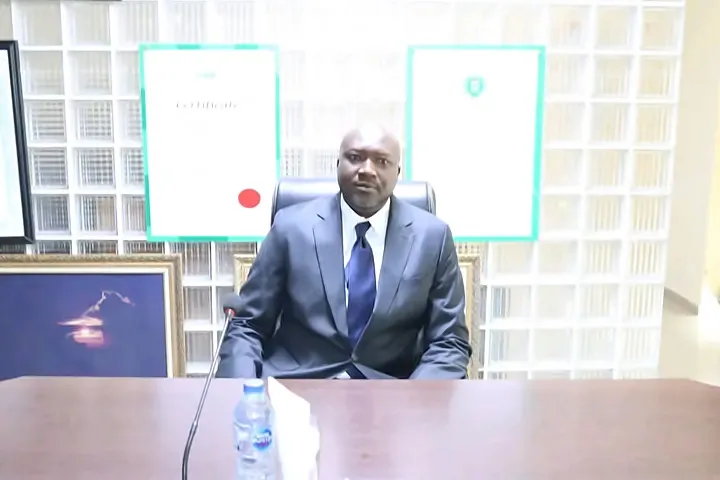
By Adedapo Adesanya
The Senate has asked President Bola Tinubu to remove the Registrar General of the Corporate Affairs Commission (CAC), Mr Hussaini Ishaq Magaji, from office.
The Senate Committee on Finance, while passing a resolution in Abuja on Thursday, accused Mr Magaji, a Senior Advocate of Nigeria (SAN), of failing to honour the Senate’s invitations to account for the finances of his agency.
“He refused on so many occasions to honour our invitation to appear before this committee.
“We have issues with the reconciliation of the revenue of CAC.
“Each time we invite him, he gives us excuses,” the Chairman of the committee, Mr Sani Musa, said as the committee passed the resolution.
CAC was part of a group of agencies that the House of Representatives Public Accounts Committee (PAC) recommended zero allocation for the year 2026, for allegedly failing to account for public funds appropriated to them.
The committee, at an investigative hearing held two weeks ago, accused CAC and some other ministries, departments and agencies (MDAs) of shunning invitations to respond to audit queries contained in the Auditor-General for the Federation’s annual reports for 2020, 2021 and 2022.
The PAC chairman, Mr Bamidele Salam, stated that the National Assembly should not continue to appropriate public funds to institutions that disregard accountability mechanisms, saying this will create fiscal discipline and strengthen transparency across federal institutions and conform with extant financial regulations and the oversight powers of the parliament.
“Public funds are held in trust for the Nigerian people. Any agency that fails to account for previous allocations, refuses to submit audited accounts, or ignores legislative summons cannot, in good conscience, expect fresh budgetary provisions. Accountability is not optional; it is a constitutional obligation,” he said.
-

 Feature/OPED6 years ago
Feature/OPED6 years agoDavos was Different this year
-
Travel/Tourism10 years ago
Lagos Seals Western Lodge Hotel In Ikorodu
-

 Showbiz3 years ago
Showbiz3 years agoEstranged Lover Releases Videos of Empress Njamah Bathing
-

 Banking8 years ago
Banking8 years agoSort Codes of GTBank Branches in Nigeria
-

 Economy3 years ago
Economy3 years agoSubsidy Removal: CNG at N130 Per Litre Cheaper Than Petrol—IPMAN
-

 Banking3 years ago
Banking3 years agoSort Codes of UBA Branches in Nigeria
-

 Banking3 years ago
Banking3 years agoFirst Bank Announces Planned Downtime
-

 Sports3 years ago
Sports3 years agoHighest Paid Nigerian Footballer – How Much Do Nigerian Footballers Earn


